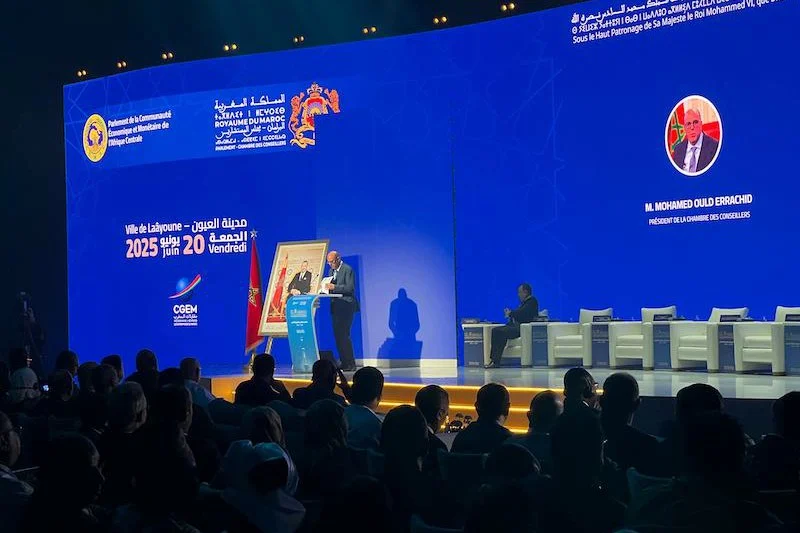
The city of Laayoune became a hub of pan-African dialogue on Friday as it hosted the Parliamentary Forum on Economic Cooperation between Morocco and the Economic and Monetary Community of Central Africa (CEMAC).
The high-profile gathering brought together senior officials, parliamentarians, business leaders, and experts in a bid to strengthen interregional trade and investment.
Held under the high patronage of King Mohammed VI, the event was jointly organised by the Moroccan Chamber of Advisors, the CEMAC Parliament, and the General Confederation of Moroccan Enterprises (CGEM).
The forum sought to create a sustainable institutional platform for dialogue, with the ambition of fostering South–South cooperation through economic partnerships and joint development initiatives.
A key outcome of the meeting was the signing of a strategic agreement between employers’ organisations from Morocco and the six CEMAC member states—Cameroon, Central African Republic, Congo, Gabon, Equatorial Guinea, and Chad.
The accord outlines a roadmap for enhanced economic integration, promoting bilateral and multilateral investments across both regions.
The forum aligns with the broader continental momentum following the launch of the African Continental Free Trade Area (AfCFTA) and reflects Morocco’s commitment to a vision of African unity, built on the pillars of solidarity, complementarity, and mutual respect.
Structured around three thematic sessions, the forum tackled critical areas for regional development:
-
The role of the private sector in investment and regional integration,
-
The impact of climate change on food and nutrition security, and
-
The potential of renewable energy as a driver of sustainable development.
With Central Africa experiencing rapid economic transformation and Morocco expanding its diplomatic and economic footprint in the region, the Laayoune forum marks a significant step in consolidating South–South cooperation and unlocking the economic potential of the CEMAC-Morocco corridor.
This initiative reinforces Morocco’s long-standing strategy of engaging meaningfully with Africa beyond trade—through institutional collaboration, regional development, and shared prosperity.



